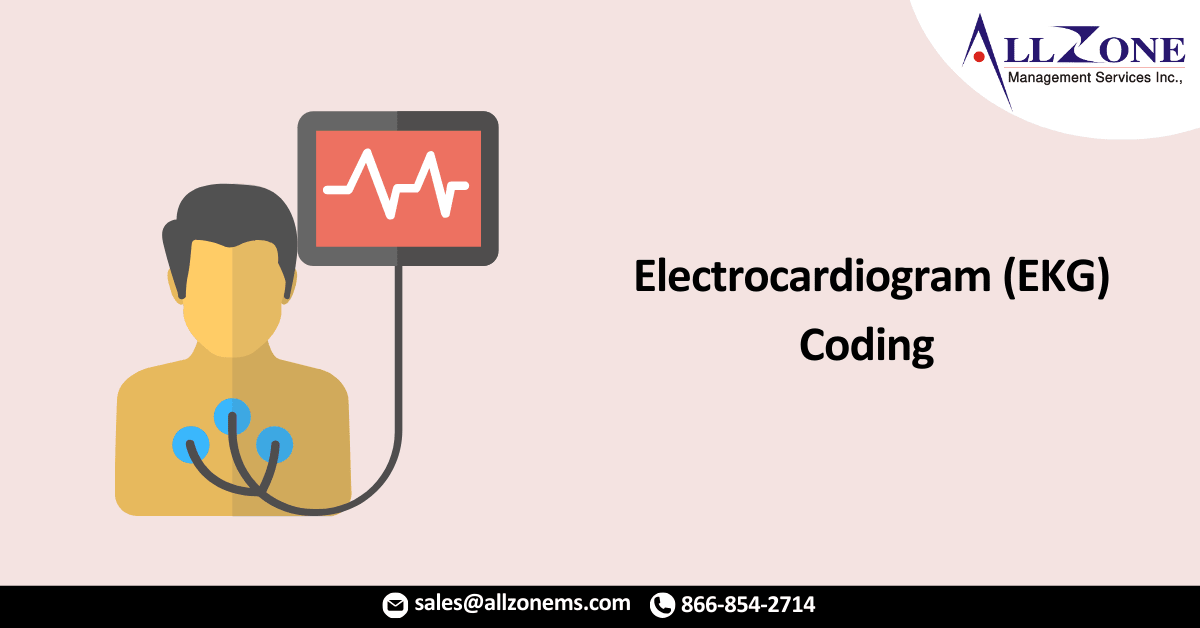The guidelines for interpreting EKGs could vary according to the specific treatment situation.
Patients presenting at the emergency department (ED) to undergo an electrocardiogram (EKG or ECG) can present a coding challenge. The main issue revolves around how to accurately report the physician’s services for the patient. Is it appropriate to utilize the EKG CPT® codes, or is an alternative approach necessary?
The answer to this question is not straightforward, as it relies on specific circumstances. Your medical coding in these instances must be tailored to the particular scenario, prompting you to be prepared to use different coding methods based on encounter details.
To shed light on this matter, we sought insights from various experts to determine the appropriate codes to apply in different situations when coding EKG patients. This ensures accurate coding for EKG procedures every time.
Keep in Mind These Codes and Utilize This Modifier
When a patient visits the ED and undergoes an EKG, your attention should be directed towards two specific code categories:
- ED evaluation and management (E/M) codes ranging from 99281 to 99285. These codes represent emergency department visits for the evaluation and management of patients. The specific code chosen depends on the level of medical decision-making and the complexity of the patient’s history and examination.
- EKG codes, including: •93000: Electrocardiogram, routine ECG with at least 12 leads; with interpretation and report,
•93005: ECG tracing only, without interpretation and report, and
•93010: ECG interpretation and report only.
No matter the circumstances surrounding the encounter, these are the codes you should prioritize when coding for EKG procedures.
Steps to Take When a Cardiologist Interprets the EKG
The interpretation of an EKG in the emergency department (ED) setting depends on the presence of other physicians, particularly cardiologists, who may be contracted by the hospital for this specific purpose.
In most cases, hospitals have agreements with cardiologists to perform the official interpretation of EKGs, and these cardiologists can bill for their interpretation services. Due to insurance regulations, only one interpretation of an EKG is covered, which means that if the facility’s cardiologist performs the interpretation, the ED physician cannot bill separately for it.
To compensate for this, ED physicians typically include the work they performed in the Medical Decision Making (MDM) section since they cannot bill separately for their interpretation. When an ED physician orders an EKG as part of a patient’s evaluation, they can receive credit for it under the “Amount and/or Complexity of Data to Be Reviewed and Analyzed” column in the MDM table. However, they do not receive any MDM credit for analyzing a test they ordered themselves.
There is an exception, though, which allows the ED physician to receive MDM credit for an EKG. If another provider ordered the EKG, and the ED physician analyzes it as part of their workup, they can claim credit under the “Amount and Complexity of Data” but must demonstrate how they utilized the EKG results.
In cases where the ED physician performs an independent interpretation of the test, a detailed report must accompany the claim to receive credit in the MDM table. The level of detail required in the report may vary based on the payer contracts, so it’s essential to review the specific requirements of each payer.
Recommended Actions When an ED Physician Interprets the EKG
In cases where not every ED has a cardiologist available to interpret EKGs, the CPT® offers a solution for coding under this circumstance. If the hospital lacks an arrangement with a cardiologist for EKG interpretations, the ED physician can perform and bill for the CPT® code designated for the interpretation, as confirmed by the coding Instructor.
However, if the ED physician chooses to bill for the interpretation using the CPT® code, they cannot count this work in the Medical Decision Making (MDM) data element for both ordering and performing the interpretation, as emphasized by the vice president of coding policy.
One potential problem arises when the ED physician performs an EKG interpretation and codes for it; getting paid for both services might become challenging. In most ED encounters, there is a high probability of an ED evaluation and management (E/M) service being provided, and in many cases, this ED E/M code cannot be billed together with an EKG code.
Despite the lack of justification for this practice, many insurance companies do not permit billing for an EKG alongside an ED E/M code. To navigate this issue effectively, it is crucial to be familiar with your payer’s policies concerning reporting an ED E/M service and EKG on the same claim, and then code accordingly. Different payers have different rules, so it is essential to review your contracts to determine the specific requirements and guidelines each payer has in place for this clinical scenario.

